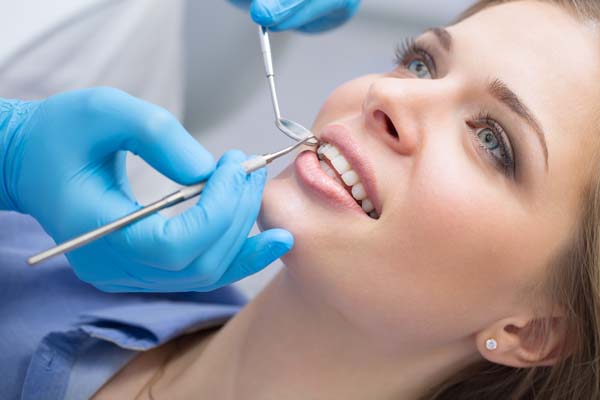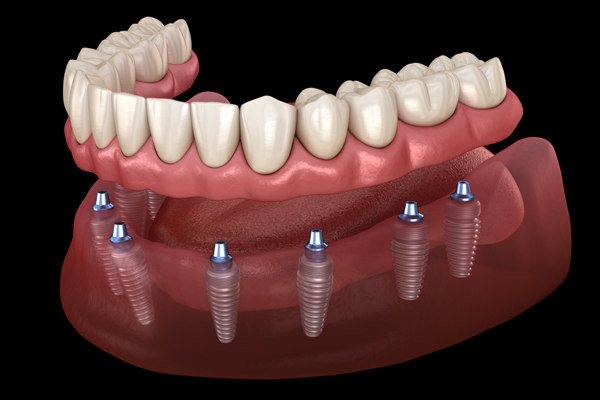Are There Dental Bonding Options?

Dental bonding is an affordable and cost-effective dental restoration procedure for people who have structurally damaged teeth. The procedure is popular among adults because it is relatively painless and can be finished in one or two dental appointments. Therefore, dental bonding is non-invasive and can be used for both children and adults. Dental bonding options can be direct or indirect, and this article describes the two.
Dental bonding options
There are two main types of dental bonding procedures–indirect and direct dental bonding. Both options involve the use of composite resin, a material that bonds to the teeth with a unique adhesive called unfilled resin.
Direct and indirect restoration both use composite resin, which is the most popular dental bonding material. The material is soft, putty-like and is the color of the tooth. Composite resin is a highly flexible and malleable dental material that fixes tooth cracks, chips and stains. Dental professionals also use the material as a dental filling for cavities.
Direct dental bonding
This is the most common dental bonding option because it provides a quick fix for chipped or decayed teeth. This restoration can restore the look, shape, color and function of natural teeth.
The procedure entails applying the tooth-colored composite directly to the tooth. The composite resin is molded to the desired shape and hardened with a high-intensity light. Afterward, the dentist will smoothen and polish the teeth. The entire procedure only takes 30 to 60 minutes.
Another option is composite veneer bonding. This is a fully cosmetic treatment to improve the shape, size and color of the tooth. The dentist can also use it to close gaps between teeth and change the length of teeth. With proper care, composite veneers can survive up to eight years before needing to be remade.
Indirect dental bonding
Indirect bonding also restores a broken or decayed tooth, but unlike direct bonding, this procedure requires two dental appointments. First, the dentist will prepare the affected tooth and make impressions. Afterward, the impressions will be sent to the dental laboratory, where a dental inlay, onlay or filling will be fabricated. Indirect restorations are also produced with composite resin. These are highly sturdy and durable because the lab technicians cure the restorations with high heat.
Maintenance and care
The composite material used for dental bonding is not as hard as the natural tooth enamel. Dental bonding is prone to stains and chips, which means patients need to practice the following proper oral care techniques to maintain the dental restoration:
- Reduce the intake of coffee, dark fruits, red wine and other food items that can stain or discolor the teeth.
- Quit smoking–smoking and tobacco use increase the risk of gum disease and oral cancer.
- Avoid nail-biting and chewing on hard objects or foods, including pencils and ice–these could damage the tooth.
- Get a protective mouthguard to protect the teeth from the effects of teeth clenching or grinding.
In conclusion
If you have a chipped, fractured or damaged tooth, reach out to the dentist as soon as possible. They will recommend the appropriate dental bonding option to restore your teeth.
Request an appointment here: https://sexton-dental.com or call Sexton Dental at (740) 363-2080 for an appointment in our Delaware office.
Check out what others are saying about our dental services on Yelp: Dental Bonding in Delaware, OH.
Recent Posts
Dental bonding is a simple and effective way to make immediate improvements to the smile by covering stains or fixing small chips, cracks, and gaps in the teeth, providing immediate improvement. The process is painless and quick and does not require major changes to the natural teeth. Those looking for an easy and affordable way…
Many patients are nervous before a dental bonding procedure, although the procedure itself is non-invasive, only takes one dental visit and does not require any anesthesia. You can prepare yourself mentally and physically for the procedure, however, by knowing what to expect, how to prepare and what to plan for after the procedure. The following details…
Dental bonding has long been a common method of tooth restoration. Your dentist has the knowledge and training to successfully perform this procedure. The dentist will also know when it is appropriate to use bonding to repair a tooth or other oral health or cosmetic issue. There are certain situations where this makes more sense…
If you have always wanted a “Hollywood smile,” you may be interested in the cosmetic benefits of dental bonding. Dental bonding is a cosmetic dentistry process by which tooth-colored resin is directly applied to existing teeth, often radically altering the appearance of each tooth.Dental bonding creates a new, bonded layer or resin attached to your…


